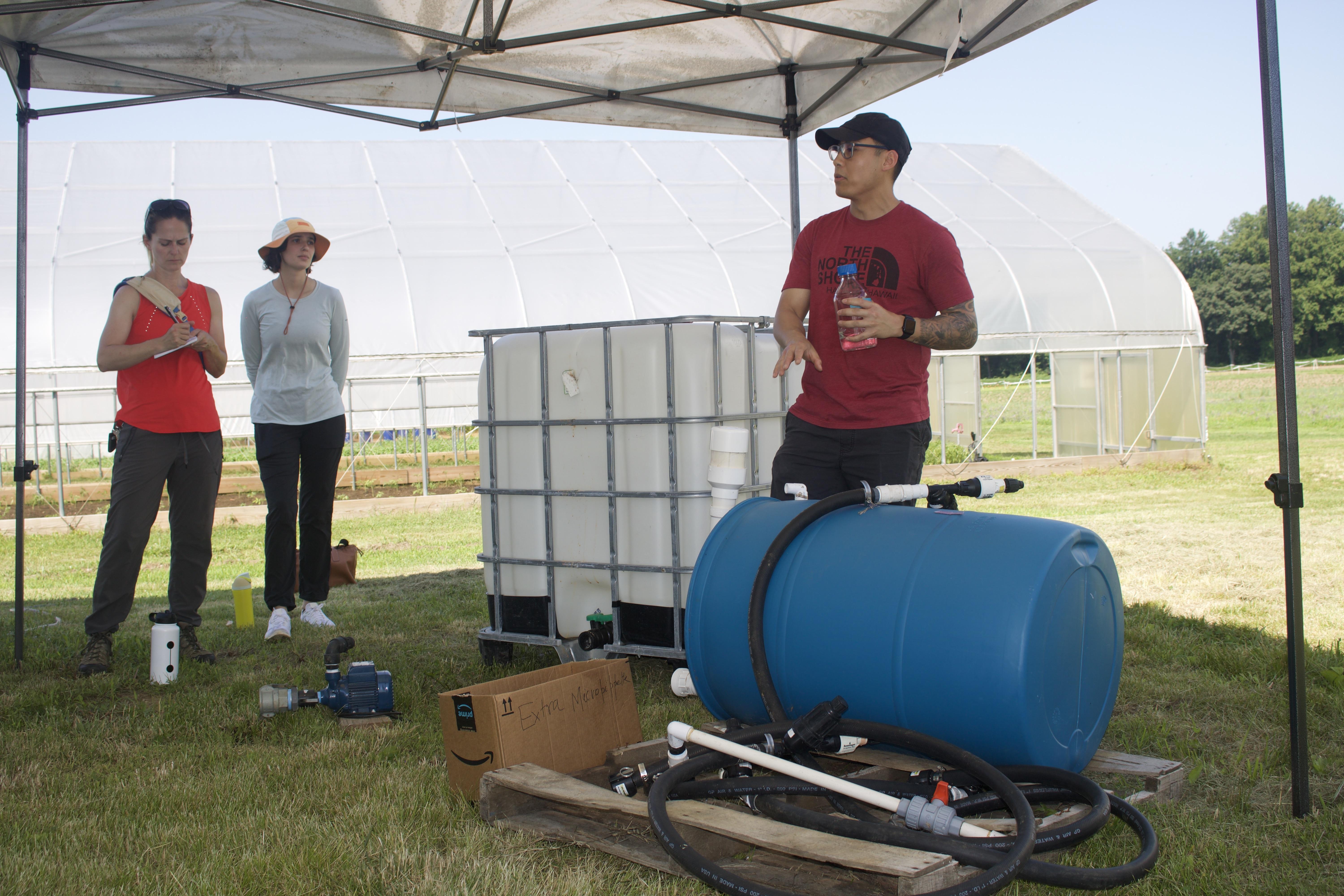
In Maryland’s rich agricultural flatlands around Upper Marlboro, a group of scientists, contractors and farmers braved the heat on a June day at UMD’s Terp Farm at the Central Maryland Research & Education Center to gain hands-on skills around safe rainwater harvesting in urban agricultural settings.
Led by Rachel Rosenberg Goldstein, assistant professor at the UMD School of Public Health, the project explores how to safely harvest and treat rainwater in the urban environment such that both crops and consumers are protected. Ensuring this practical knowledge rooted in research reaches community members is an essential part of the project. Participants received hands-on training about urban rainwater harvesting and water treatment on urban farms. Goldstein is also a lead researcher in the Water Emergency Team (WET), a Grand Challenges Grantee.
Even as urban agriculture is expanding across Maryland, farmers must contend with less predictable rainfall due to climate change. They face longer stretches of drought punctuated by heavy downpours, making water access both unreliable and costly, especially in cities.
“This project partly seeks to answer how urban farms can create their own rainwater collection systems so excess rainfall can be stored and used in times of drought,” said Goldstein.
“Rainwater collection can result in possible food safety risks – water flowing from roofs can bring contaminants like bird droppings, debris and other unwanted substances into the collected water. So knowing the science and the skills of how to do this safely is crucial.”
Concerns arise regarding the quality of the collected water when left untreated and used to water edible plants like vegetables and herbs and whether bacteria in untreated water could lead to food borne illnesses. To reduce these risks, Goldstein and her team are actively testing the success of different treatment and filtering methods versus using untreated water.
Participants at Terp Farm got a firsthand view of the existing rainwater collection systems and irrigation systems that were used in the project, as well as information on what was used in their water treatment and filtering processes. They also practiced installing drip irrigation and observed a demonstration rooftop collection system.
“Trainings like these are so important because farmers like to build their own stuff and there are only so many contractors that work with small urban farms,” said Neith Little, a UMD Extension Agent specializing in urban agriculture who is partnering in the research on this project. This event marked an important step in equipping those who build rainwater harvesting systems on Maryland urban farms with practical tools and science-backed knowledge to manage and use rainwater safely.
Partners on this project include the University of Maryland School of Public Health, UMD College of Agriculture & Natural Resources, UMD Environmental Finance Center, UMD Extension, the Central Maryland Research & Education Center, Upper Marlboro Facility, UMD Dining Services, and Plantation Park Heights Urban Farm. The Hughes Center partially funds this study.
– This revised article is published with permission from Harry R. Hughes Center for Agro-Ecology.